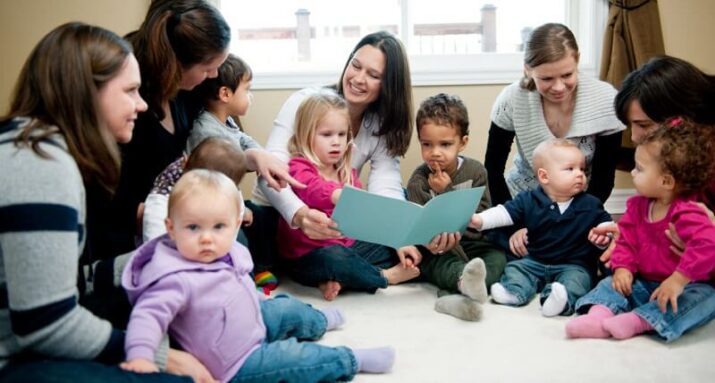Great Tips to Boost Strong Confidence for Your Children
Great Tips to Boost Strong Confidence for Your Children
Concerns and Children’s Affairs
The students returned to their schools and the new school year began. Everyone was busy preparing, registering, books, and things related to the school and its concerns. We see parents at the beginning of each academic year in terms of physical and psychological stress. Often, parents are nervous about not responding to their children and sometimes refuse to go to school.
Here are some simple techniques to help you talk to your teens and children to strengthen their strengths and build positive feelings. This will help them a lot at the beginning of the school year and strengthen their spirits among students.

Quiet Dialogue with Children
More fun for children 10 years of age and less enjoy a trip to nature, jogging behind the butterflies, taking pictures, and playing nonstop. To know their thoughts, you must first ask them what they loved that day and what was the color of their day.
Focus on color, because the language of color is when the child takes first place in the expression. Colors can range from gray to violet. It’s always good to know why she chose colors to get to know what they were thinking and what they were feeling that day.
There are several ways to open an easy and interesting dialogue with the child. But the easy and quick way to open a meaningful and good dialogue with children of all age groups under the age of adolescence is to chat and communicate with them about the events of their day. This conversation usually takes place at the dining table for us, usually at the dinner table.

I would like to ask parents to focus on the language of dialogue with their children, especially at the dining table. In the period of dialogue between parents and their children, the evaluation system is used in reality to talk about the emotional and psychological state of the child.
What is going on in his mind, what is bothering him, and what is he happy about? Unfortunately, many parents fall into the big mistake of not communicating their child’s healthy message or not understanding what should be understood in the right and ideal way.
Understanding what is going on in the minds of our children
As parents, we spend a lot of our time talking to our children, and then we wonder why they do not seem to have listened to us! Many times and at hot moments, we find ourselves stuck in conflict and sharp debate, and we do not know what to say to stop this fighting.
We felt confused and had great questions!? Why do our children not respond? Why do they reject our advice? Sometimes we do not know how to answer many of the difficult questions that our imagination has in mind!
Why is Talking with Children Sometimes Difficult?
The main challenge for parents is that they often speak without understanding how their children receive the message and how receptive they are to their content. This is confirmed by many doctors of psychology. They often assume that our children understand our words.
But then we wonder why they did not do what we said to them. So many questions! While many conversations between parents and children can lead to misunderstandings, effective communication becomes not only possible but can reach a dead end.

Purposeful Dialogue
We base our information on successful strategies on many issues from human development centers and family and social relationships. Pay attention! There is no saved scenario or system to continue. I think these ideas are easy to implement as tools you can use when you need them to help you and your child understand each other.
When talking to your child, be calm, take comfort, and listen to your child. Specific actions should be taken to further promote this dialogue, such as your direct view of your eyes, bending to your child’s level, or carrying you to make him feel that you are interested in him.
You have to listen because this helps a lot in building a solid relationship between you and him and helps more in building this relationship by listening to him. If you cannot speak at that particular moment, and you are busy with something very important, tell him that you are now in the middle of something important and when you are done immediately you will start talking to him.

Listen to What Our Children Say
Your child’s words are important, and you should repeat what you heard from him. It is useful to repeat and repeat what you have heard. Put feelings and feelings in your child’s words, and this helps a lot to understand what he wants. He may or may not want to play in the swing or any other game, right? Or do not want to go to school today feeling tired.
And you have to remedy what he wants carefully and carefully to avoid the big problem. If the child is in a state of anger and crying strongly, and your reaction was that you received him; ‘You are really crazy, shut up and listen to loud and other foul and unloved words!’ Then make sure that this may worsen the situation rather than help him and will increase his screaming and crying.
Accountability of Children
Ask specific questions to gather more information. You can say to him, ‘Can you tell me exactly what happened, what bothers you, what exactly do you want?’
If it makes sense to speak some more, you may ask him: ‘Why are you so upset? What exactly is it that saddens you? ‘Ask him questions frequently to find out the reality of your child’s feelings. It helps you gather more information, so you can understand what actually happened and how to develop the right solutions.
Dear!
Children’s blessings are not worth the money! What you cultivate from the values and teachings of your child will come today, harvested in the future. Consider what you sow to harvest a good harvest.
Related Posts
- Guide to Real Profit and How to Succeed in Your Life
- How To Reveal the Hypocrisy of a Liar Person?
- What is Happiness and How do You Achieve it?
- NASA Scientists Confirm There is Water on Mars (Video)
- Be Happy Every Day with Doing These 6 Tips All Time







